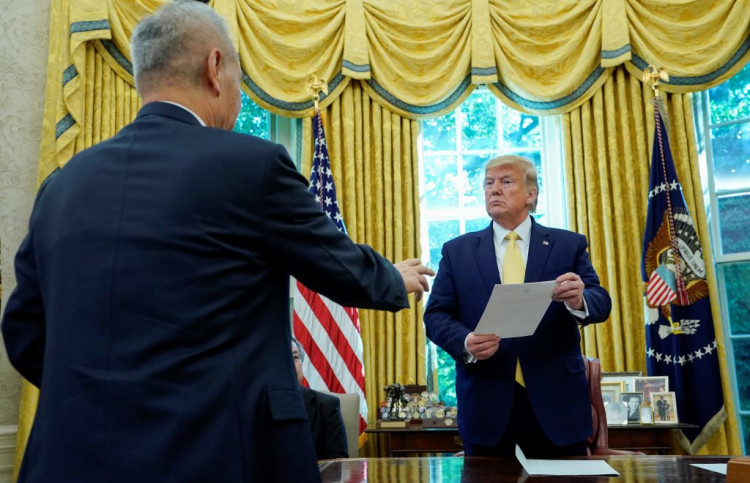It's just a third of the three rounds of President Donald Trump's tariffs on $250 billion of Chinese goods and yet 44,000 requests for tariff exclusion from 3,000 companies got filed already with 28,000 getting looked at for a review as of November 1.
Around 4,900 requests for tariff exemption got granted while around 10,970 got denied.
The exclusion process is already closed for lists one through three covering $250 billion of Chinese products.
Lists one and two, covering $50 billion of goods, had all requests already been granted or denied.
When negotiators agreed on principle on the first part of a trade deal, optimism surged.
However, Treasury Secretary Steven Mnuchin said that tariffs scheduled for Dec. 15 will go into effect if no agreement is reached.
Analysts gave this first phase of the trade deal a lukewarm response with Morgan Stanley calling it "uncertain" to which the investment bank added that there's a "meaningful risk" that the trade issues will continue.
Goldman Sachs said there's a 60% chance that tariffs will get imposed in 2020.
Though Evercore agrees with Goldman Sachs on the tariffs' implementation getting delayed, it didn't think there will be tariff increases next year.
Uncertainty rose just this week when Chile, which had been undergoing mass protests over domestic issues, canceled the APEC summit where this first phase of the trade deal was supposed to get signed in between forums.
Trade lawyers have been urging companies to file for tariff exclusions amidst President Trump's optimism on signing this first phase of the deal.
Jeremy Page, a trade lawyer with PageFura, said the USTR (United States Trade Representative) process has been fair.
To be granted an exclusion, a company should explain whether the particular product is available only in China, whether they've attempted to source the product from the US or a third country, whether the tariffs will cause "severe economic harm to the requester or US interests" and whether the product is important to Beijing's "Made in China 2025" program.
With the USTR opening the filing of tariff exclusion requests only recently on the fourth round of products targeting $300 billion of Chinese imports, more tariff exemption requests are expected.
Unlike the other rounds of past tariffs that targeted components and parts, this fourth round includes a range of finished consumer goods ranging from clothing, electronics, and musical instruments.
As of Nov. 2, 146 exclusion requests for the fourth round were filed already.
Apple, in particular, is asking for tariff exclusions for its Apple Watch, HomePod and iPhone parts among other items.
The deadline to file exclusion requests for the $300 billion of goods covered by this fourth list is on Jan. 31, 2020.





